The cool kids Buddhist.
Boston Phoenix
ABOUT THE BOOK
How can I be the person I want to be when Im stuck in a job I hate? How is it possible to stay present in an era of nearly constant distractions? Can I pick someone up at a bar or club and still call myself spiritual?
This nitty-gritty guide to life for the spiritual-but-not-necessarily-religious uses Buddhist teachings to answer those burning questions and a host of others related to going out, relationships, work, and social action. Based on Lodro Rinzlers popular advice columns, Walk Like a Buddha offers wisdom that can be applied to just the sort of dilemmas that tend to arise for anyone making even a modest attempt to walk like a Buddhathat is, to live with honesty, wisdom, and compassion in the face of whatever life surprises you with.
LODRO RINZLER is a teacher in the Shambhala tradition of Vajrayana Buddhism. He has taught numerous workshops and retreats. His column What Would Sid Do? (Sid = Siddhartha, the Buddha) appears regularly in the Huffington Post.
Sign up to learn more about our books and receive special offers from Shambhala Publications.

Or visit us online to sign up at shambhala.com/eshambhala.
WALK LIKE A BUDDHA
Even if Your Boss Sucks, Your Ex Is Torturing You, and Youre Hungover Again
Lodro Rinzler
 Shambhala / Boston & London / 2013
Shambhala / Boston & London / 2013
Shambhala Publications, Inc.
Horticultural Hall
300 Massachusetts Avenue
Boston, Massachusetts 02115
www.shambhala.com
2013 by Paul Rinzler
Cover design by Daniel Urban-Brown
All rights reserved. No part of this book may be reproduced in any form or by any means, electronic or mechanical, including photocopying, recording, or by any information storage and retrieval system, without permission in writing from the publisher.
Library of Congress Cataloging-in-Publication Data
Rinzler, Lodro.
Walk like a Buddha: even if your boss sucks, your ex is torturing you, and youre hungover again / Lodro Rinzler.First edition.
pages cm
eISBN 978-0-8348-2916-9
ISBN 978-1-61180-093-7 (pbk.)
1. Religious lifeBuddhism. I. Title.
BQ5405.R56 2013
294.3444dc23
2013011861
For Alex. May we all love half as hard as you did.
CONTENTS
2012 was the hardest year of my life. I owe an enormous debt to the people who supported me throughout this period. To David Delcourt, Brett Eggleston, Will Conkling, Miranda Stone, Laura Sinkman, and Marina Klimasiewfski, I owe more than words can describe. To Ethan Nichtern, my oldest friend, thank you for continuing to show up. To Oliver Tassinari, Matt Bonaccorso, Sean Gavin, Eric French, and Dilip Sidhu, thank you for being there for me year in and year out. To my parents and siblings, I have great love and appreciation for you.
This book was written over a period of six weeks in New York City beginning in December 2012. I was without a home during that time, but wonderful people took me in and gave me space to work from. Ericka Philips became more than a partner-in-crime, allowing me to work from her Harlem apartment for the majority of that time, feeding me tea and listening to me lament, all with extreme generosity. Annie Colbert and Tom Krieglstein are terrific friends to have, and allowed me to take over their Lower East Side apartment for a spell. Last but not least, Kelsey Merritt let me monopolize her home in Union Square whenever I wanted and provided excellent music and company during that time.
More than one hundred people wrote in with questions for this book. I would like to thank at least some of those people: Molly Parr, Mia Baxter, Meghan Sultana, Rob Codling, Jose Rodriguez, Stephanie Elliot, Jason Bequette, Jesee, Ryan Nausieda, JC, Mona, John Globiemski, Michael, Pat Groneman, Cody McGough, Jess Auerbach, Lynne, and Jessica Carsten.
I am lucky enough to work with the best people in the publishing business, including Jonathan Green, Sara Bercholz, Julie Saidenberg, Steven Pomije, Daniel Urban-Brown, and Stephanie Tade. My editor, Dave ONeal, is the best thing since sliced bread. Thank you all for your incredible care in bringing this book to life.
One final thank-you must be directed to all of the teachers and mentors who have guided me on the Buddhist path. My appreciation is fathomless. In particular, I owe credit for whatever small amount of wisdom that has been put forth here to my root teacher, Sakyong Mipham Rinpoche.
Straight off the bat, I should mention that Im sort of a mess and also okay. Sometimes Im sad or angry, and yet Im also confident that at my core I am a buddha. Im not alone in that belief. A core tenet of Buddhism is that we are all already awake. At the same time, we dont normally act from that perspective; we often act from our confusion instead. So in a sense, were all sort of a mess (acting confused) but also okay (inherently awake).
If youre reading this you may not necessarily be a Buddhist, which is great. Or maybe you are but realize youre not the perfect meditator (who is?). Either way, I am guessing that you have some inkling that while there are major upsets in life and sometimes you may act inappropriately, you arent such a bad guy or gal. That you might even buy in to this idea that at your core youre innately kind, wise, and worthy.
At one point the Zen master Suzuki Roshi turned to his students and said, All of you are perfect just as you are... and you could use a little improvement. That seems to be the case with all of us. We are already perfect. We are already Buddha. And we need to stop acting from the basis of our own confusion (read: acting like a jerk). The slight shift toward improvement that Suzuki Roshi mentions is based on developing unconditional faith in your own ability to be awake. It is recognizing that the mess aspect of who you are is transitory, while the awake quality is always available and present.
Several years ago I hatched a plan to write a book about Buddhism and this particular topic for people in my generation, Generation Y. I was in Japan for a few months and jotted down some initial thoughts that, frankly, didnt go anywhere. So I meditated a lot and waited for a better time to do that work.
When I returned to New York City, I went out to eat with my friend Ethan Nichtern. He encouraged me to start my writing by doing regular blog posts. Together over brunch we hatched an idea for a weekly Buddhist advice column known as What Would Sid Do? Sid, in this case, was short for Siddhartha. Abbreviating the name was not meant as any disrespect for the man who went on to become the Buddha, but you know, I thought that maybe his close friends might have called him just Sid while growing up. Do you really think they didnt have nicknames twenty-six hundred years ago?
The idea behind the abbreviation, and the column as a whole, is that before Siddhartha Gautama attained enlightenment, he was a confused twenty- and thirty-something looking to learn how to live a spiritual life. In the column, we looked at what it might be like if a fictional Siddhartha were on his spiritual journey today. How would he combine Buddhism and dating? How would he handle stress in the workplace? What Would Sid Do? was devoted to taking an honest look at what we as meditators face in the modern world.
Upon its inception, people began writing in with questions about how they could apply Buddhist principles to their everyday life. No subject was considered taboo. In fact, the first topic that came up on the column was about what to do when you wake up next to a stranger after a night of sex. I recommended some traditional teachings around communication and some advice around taking your bedmate out to brunch. As you may suspect, I really like brunch. After that, topics came in from all over the world, ranging from developing a meditation practice to going out on the town to romantic entanglements to social action to work. While only the littlest bit of the previously published work is in these pages, all of those topics are covered in-depth within this volume.
Next page
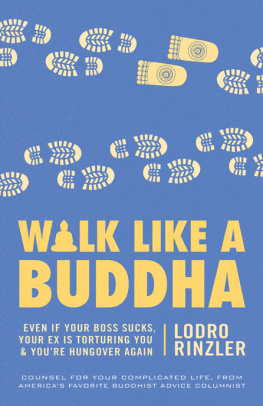
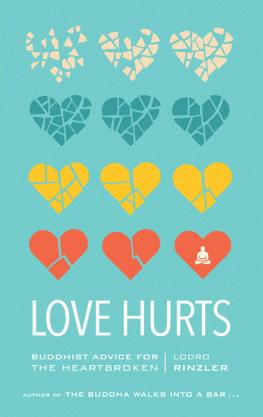
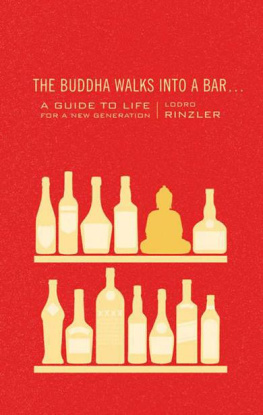
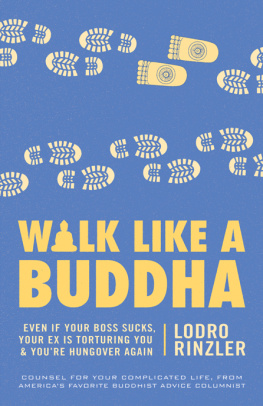
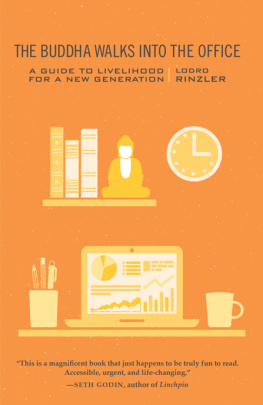
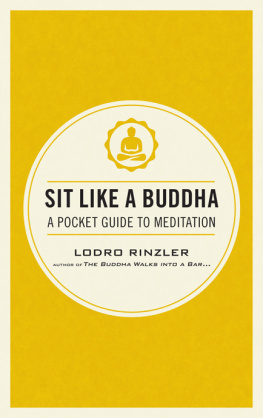

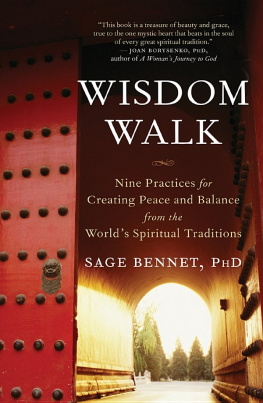
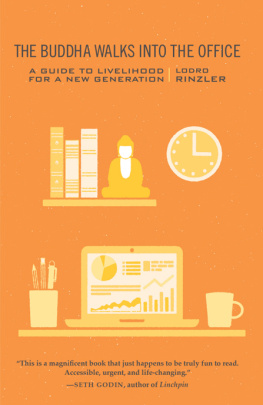

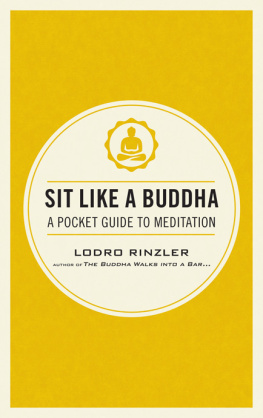

 Shambhala / Boston & London / 2013
Shambhala / Boston & London / 2013